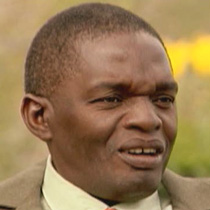Washington
16 June 2009
 |
| In the 1990s logging in Suriname became a concern as it threatened the land |
In the 1990s logging threatened the Suriname land
In the South American coastal country of Suriname, many people thank Wanze Eduards and Hugo Jabini for saving the land that local villagers, called Saramakans, depend on.
The Saramakans are one group of Maroons, tribal people in the former Dutch colony, who call Suriname's tropical forests their home.
But in the late 1990s, their land was threatened. The government of Suriname decided to allow logging companies to enter Saramakan territory, without tribal permission. Eduards, a village captain, says the loggers were destroying people's farms and the government threatened to arrest anyone who tried to stop them.
 |
| Wanze Eduards |
Organized community meetings
Eduards and Jabini organized community meetings to hear the concerns of the nearly 25,000 people affected. They established the Association of Saramaka Authorities so they could better defend their land, and filed a petition with the Inter-American Commission on Human Rights.
"We proved to the commission that Suriname violated our land rights," Jabini said. "And stopped us from doing our normal activities."
Eduards and Jabini continued to hold community meetings and mapped out tribal territory to help support their cause.
Saving acres of the rainforests
After years of work, the human rights commission took the case to the Inter-American court which ruled in the Saramakans' favor. The initiative saved 9,000 acres of rainforests belonging to the Saramakans.
 |
| Hugo Jabini |
The Suriname government declared publicly it would follow the ruling of the court and respect the Saramakan lands, but Jabini says their work is far from over.
"Oh no, the work has just begun because we have to make sure the government implements the judgment in the right way," Jabini said. "We also have the duty to manage our land in the right way. So we have to work with our people to make sure they don't destroy the forests, since they own it now.
Jabini and Eduards received this year's Goldman Environmental Prize at ceremonies in the United States.